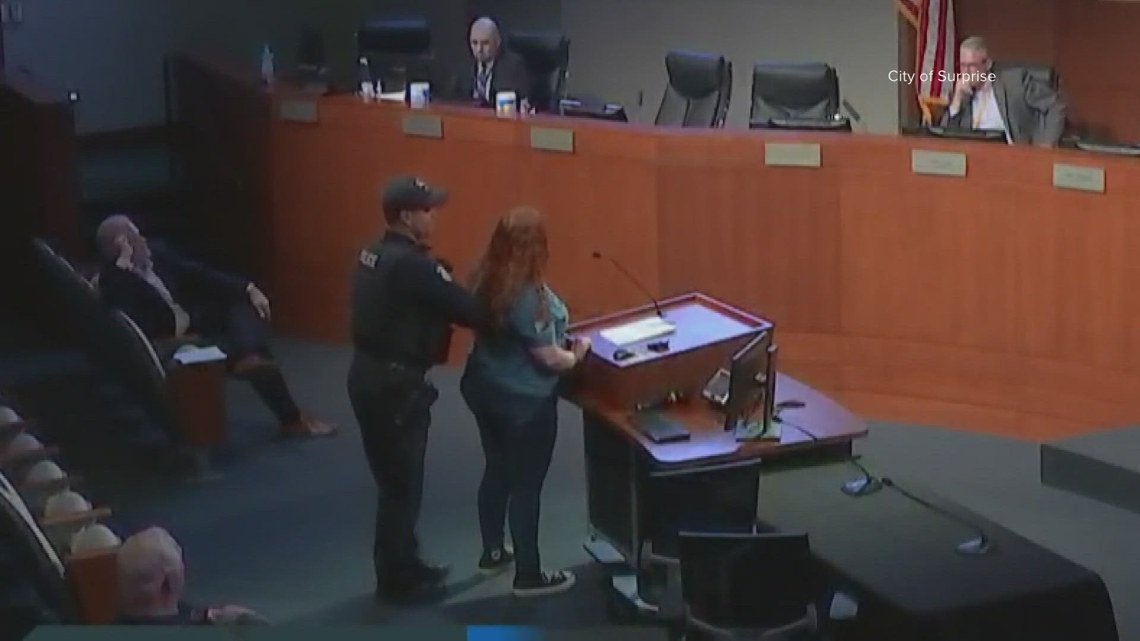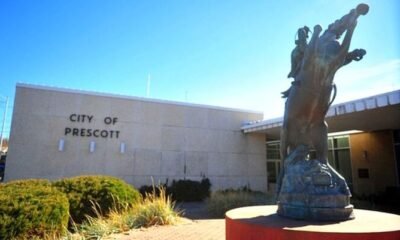home
Free Speech Warriors Take On City of Surprise Over Arrest at Council Meeting

SURPRISE, Ariz. — A mother from Surprise, Arizona, was removed from a city council meeting in August and subsequently arrested for voicing her concerns about the city attorney’s salary. Amid the fallout, a prominent free speech organization has stepped forward to challenge the city’s actions.
During the meeting on August 20, Rebekah Massie expressed her opposition to agenda item six, which focused on the renewal of the city attorney’s contract that included a salary increase. After a tense exchange with the council, the mayor ordered her removal, citing a violation of city rules. Massie was eventually charged with trespassing.
The Foundation for Individual Rights and Expression (FIRE) has initiated a federal lawsuit against the city, arguing that Massie’s removal constituted a breach of her First Amendment rights. Conor Fitzpatrick, who represents Massie in her civil suit, emphasized that citizens should be free to express their opinions to elected officials without fear of reprisal.
Massie raised concerns during the meeting alleging “numerous violations or alleged violations” related to the attorney’s performance, questioning the justification for a raise. She confronted Mayor Skip Hall when he interrupted her claims, declaring that her right to speak was being suppressed. Hall maintained his stance, and the incident escalated, resulting in police involvement.
The Surprise Police Department later stated that Massie was cited on the trespassing charge and indicated that additional charges might be pursued for resisting arrest and obstructing governmental operations. Notably, the entire scenario unfolded in front of her 10-year-old daughter.
FIRE’s lawsuit contends that the First Amendment protects the right of citizens to voice criticisms of their public officials. The document highlights that long-standing legal precedents ensure that citizens retain the right to confront their leaders openly.
Fitzpatrick criticized the city’s policy requiring participants at public meetings to refrain from criticisms of city employees, suggesting it conflicts with constitutional protections. He remarked, “Public meetings are not safe spaces for elected officials,” insisting that officials should be prepared to hear constituent feedback, whether favorable or not.
The lawsuit seeks to invalidate the “Council Criticism Policy” and to secure damages for Massie stemming from her treatment during the meeting. Public sentiment regarding the incident has turned sharply against the city officials, reflected during the subsequent council meeting where attendees criticized the mayor’s actions.
The city council did not respond to inquiries about the lawsuit during the meeting, and a spokesperson declined to comment due to the ongoing litigation.
This situation raises important questions about the boundaries of free speech in local governance and the responsibility of elected officials to engage with their constituents’ concerns.


















